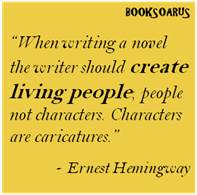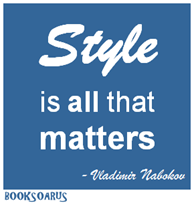In contrast to the writing in first person, the third person narrator is one of the most commonly used narrative modes. Here the narrator describes what is happening to the characters in the story. The characters are referred by their names or as “he” or “she” or even “they.”
creative writing tips
Writing in first person: Tips, examples and ideas
To say it simply, a narrator is somebody who recounts or tells the story. One of the most important choices about your writing style you will make as a writer is the choice of narrator. Before you begin writing you have to tackle the following questions:
9 Writing Stimulators to combat Writer's Block

“You can’t think yourself out of a writing block, you have to write yourself out of a thinking block.”
– John Rogers
In our earlier post we gave you some ideas about what creative activities you can pursue when you want to take a break from writing. If you missed it, here’s the post –> 4 Creative writing tips to make you a better writer.
But what happens when you are unable to write?
4 Creative writing tips to make you a better writer
No new creative writing ideas. The words seem to be on strike. You read what you’ve written and are completely dissatisfied and suddenly you don’t feel like writing. You know that there is a better way of writing something it just won’t come to you.
Or you’ve written a few pages and have no idea what to do next and worse still, you are suddenly B-O-R-E-D with your story and you have this overwhelming urge to abandon it.
5 types of conflict in literature with examples
 We provided you with tips on how to write and develop the plot of a story.
We provided you with tips on how to write and develop the plot of a story.
We talked about why one of the top questions that you need to stop and answer during each writing session is, “Is Something Happening?”
Let’s look at this question under a slightly different light: If nothing were happening would it be interesting to read? This question is closely related to the topic on hand – conflict.
The A to Z of how to develop characters in novels
 Here’s a complete A to Z account of characterization. We bring to you what goes into building and crafting memorable characters for your novel, short stories. Learn what “flesh them out,” actually means.
Here’s a complete A to Z account of characterization. We bring to you what goes into building and crafting memorable characters for your novel, short stories. Learn what “flesh them out,” actually means.
Dialogue writing tips for your novel
You might move your readers with your lyrical prose and bring to life fictional cities, extra-terrestrial life, new worlds and whole landscapes, all through deft narrative description but at some point your characters have to converse. Else, admit it, it is going to be plain boring for them and most importantly for your readers. Dialogue writing is an aspect of the craft that new writers sometimes get completely wrong and bad dialogue can kill the interest in the story.
Writing styles: Are you different from the other authors?
 If you are a relatively new writer in English (or any other language for that matter) you might have been asked, “So, have you found your writing style?”
If you are a relatively new writer in English (or any other language for that matter) you might have been asked, “So, have you found your writing style?”
Have you wondered what writing styles really mean? Is style about being an expert words-smith? Is style the garb or is style the garnish? Is style the primary ingredient in the narrative dish or is style the plating?
There are no sacrosanct answers, just some exploratory ideas about what constitutes writing style.
Writing about the setting of a story
The setting of a story is an important aspect that’s often missed out by many writers. It’s important to get the where right to enhance the who and the what. In this post, we cover why the setting of a story is important and how you can incorporate the basic principles in your book writing.
Idioms and clichés in creative writing
When it comes to creative writing, many of the phrases that are commonly used (especially by new writers and authors) are anything but creative. It is pretty normal to overuse idioms and cliches in writing.